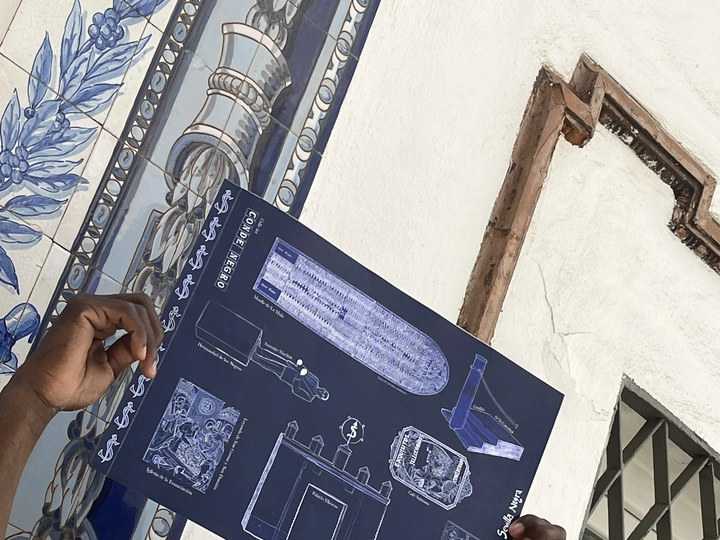Tools to Dismantle

Irene Feria Prados is a spatial designer, architectural worker, and independent researcher based in Brussels. Her work explores how spatial design can foster more just, inclusive, and situated ways of living by addressing realities often overlooked in architectural discourse—particularly those shaped by gender, race, and class. Through mapping, design, writing, and collaborative making, she draws on intersectional feminism, decolonial thinking, and urban activism to challenge the presumed neutrality of the architect’s gaze.
She holds a Master's degree (cum laude) from Delft University of Technology and a Bachelor's in Architecture from the Technical University of Berlin. She has worked as an architect at Bovenbouw Architectuur and Laura Muyldermans, as an exhibition designer at RAA in Berlin, and has taught at TU Delft and the Amsterdam Academy of Architecture. Her work has been showcased at the Floating University in Berlin, the Rotterdam Architecture Biennale and Recyclart in Brussels.
Currently, Irene teaches at KU Leuven (Sint-Lucas), where she develops and tutors design studios applying queer feminist theory and critical border theory to architectural practice. Alongside teaching, she works on small-scale reuse projects and graphic design for non-profit organisations. In both environments, she centres intersectional and locally rooted methods, deeply informed by her experiences of living in-between contexts.
Architecture’s complicity in intersecting systems of oppression has long been interrogated within critical theory. From the spatialisation of violent migration policies to zoning that reinforces socioe-conomic and gender divides, architectural practice often operates within a capitalist and exclusionary paradigm. As a discipline that spatialises power, it relies on tools—drawing, model-making, rendering, mapping—typically used to commercialise projects and reproduce dominant spatial discourses. Inspired by Audre Lorde’s assertion that “the master’s tools will never dismantle the master’s house,” this project asks: can these same tools be critically repurposed to expose and challenge the very systems they have upheld?
This proposal posits that the issue may not lie in the tools themselves, but in the inherited, often unquestioned technologies—rooted in Western, profit-oriented, and supposedly “objective” knowledge—that shape their use. To reclaim architectural tools as instruments of spatial resistance, a methodology was developed across two participatory projects: Mapping Sevilla Negra and They Want Us Out. The first, co-created with a decolonial collective of Guinean origin, used architectural drawings to expose colonial traces in Seville’s urban fabric. The second, a guidebook developed with and for queer migrants in Belgium, used spatial diagrams to navigate exclusionary immigration infrastructures.
This methodology draws on feminist standpoint theory, accounting for the maker’s point of view to instead centre subaltern perspectives, and on decolonial mapping practices that build on embodied knowledge and collective memory to find plural and accurate spatial understandings. This proposal is an invitation to expand, build up or re-examine this methodological framework for addressing urgent societal issues (e.g. coloniality linked to migration) through a critical use of architectural tools—understanding the affordances of architects as active agents of change.